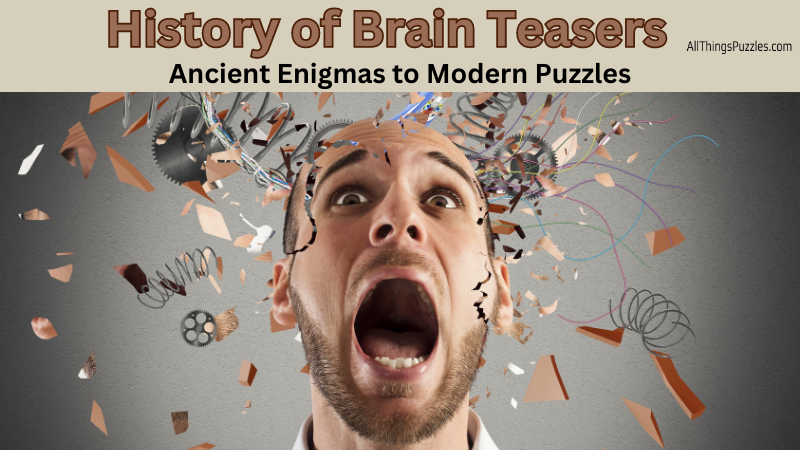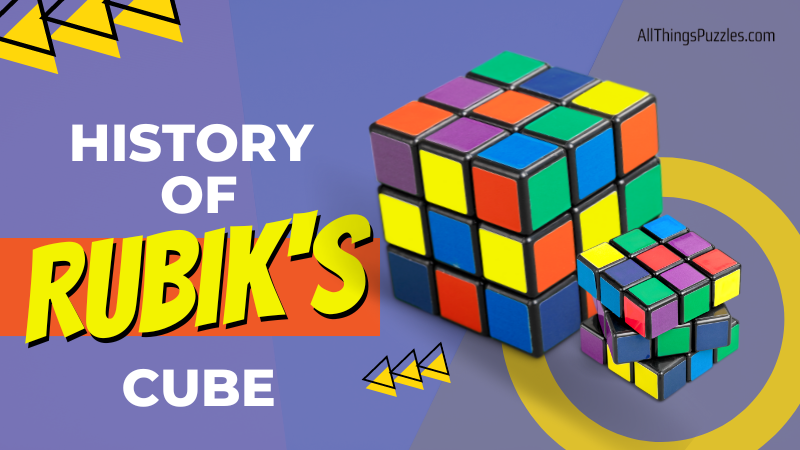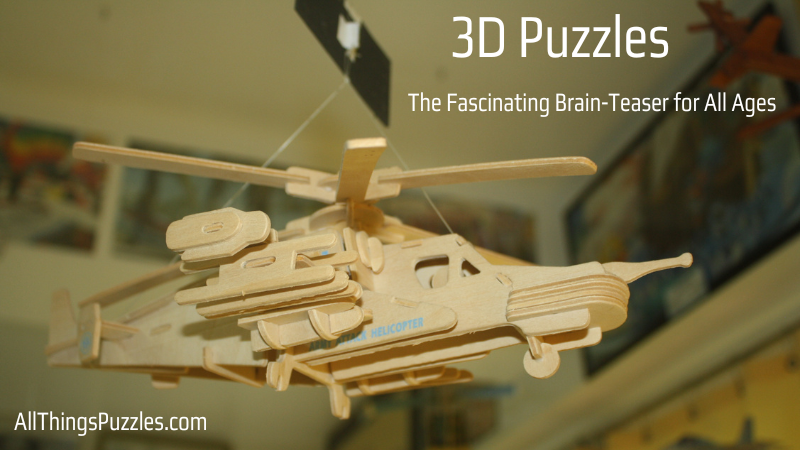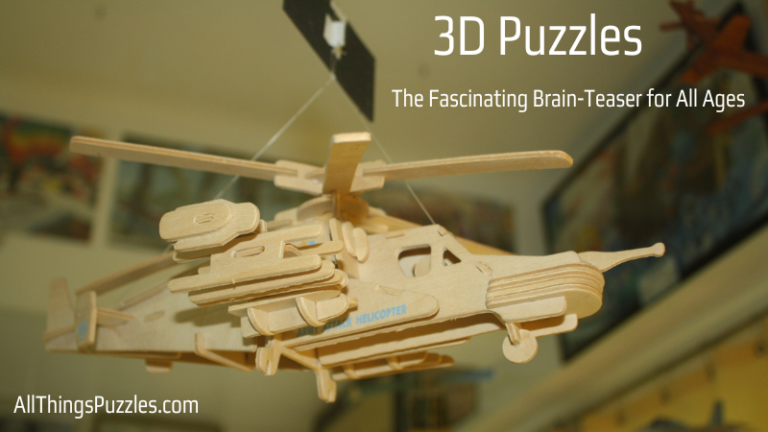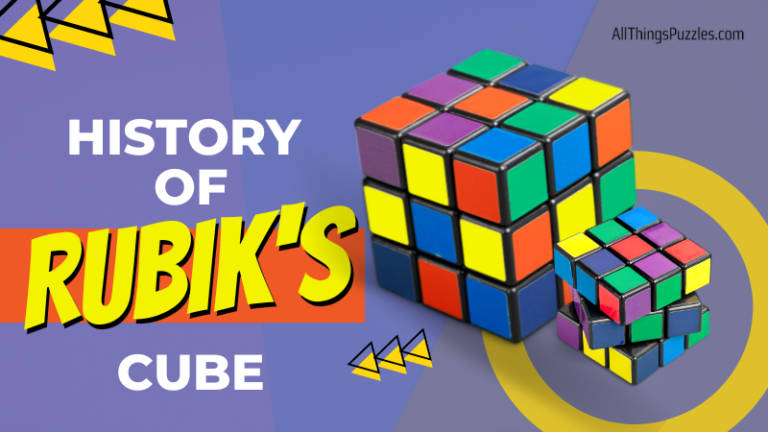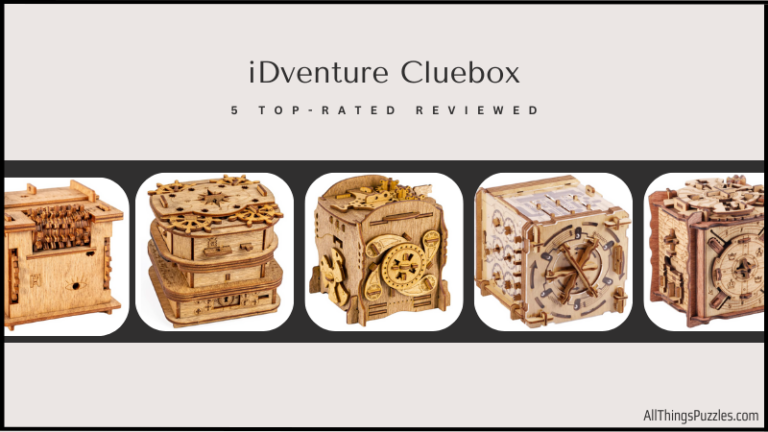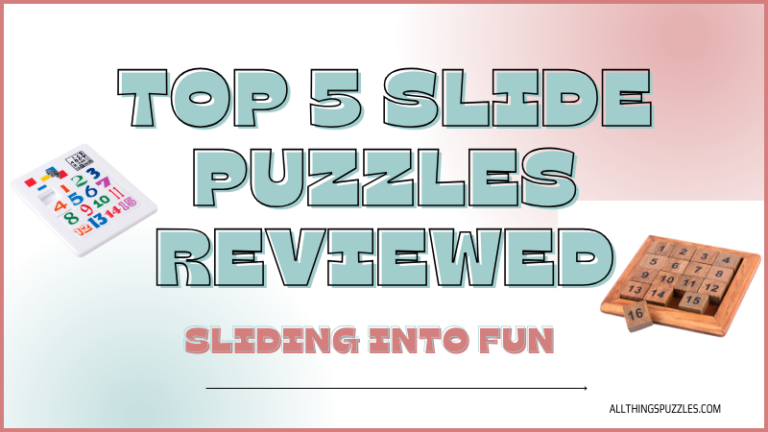Brain teasers have long captivated the minds of people, offering a unique blend of challenge and amusement. In this article, we delve into the fascinating history of brain teasers, exploring their origins and tracing their evolution through the ages. From ancient civilizations to the modern era, these mind-bending puzzles have entertained and stimulated thinkers across time. Join us on this journey as we uncover the intriguing backstory of brain teasers.
What Is A Brain Teaser
A brain teaser is a type of puzzle or problem designed to challenge and entertain the mind. It often involves thinking creatively, using logic, reasoning, and lateral thinking skills to find a solution. Brain teasers come in various forms, such as riddles, puzzles, or visual challenges. They typically require you to think outside the box, consider multiple perspectives, and sometimes make unexpected connections to arrive at the correct answer.
Brain teaser puzzles can be called by various names, depending on their specific characteristics and formats. Some common names for brain teaser puzzles include:
Riddles: Puzzles that present a question or statement requiring creative thinking to find the solution or hidden meaning.
Logic Puzzles: Puzzles that involve deducing logical relationships or patterns to arrive at a solution.
Brainteasers: General term for puzzles that challenge the mind and require thinking outside the box.
Mind Teasers: Puzzles designed to engage and stimulate the mind, often requiring problem-solving skills.
Enigmas: Puzzles or problems that are mysterious, difficult, or puzzling in nature.
Conundrums: Complex and challenging puzzles or riddles that often involve a play on words or require clever thinking.
Mathematical Puzzles: Puzzles that involve numbers, mathematical operations, or mathematical concepts to solve.
Visual Puzzles: Puzzles that rely on visual perception and spatial reasoning to find the solution.
Lateral Thinking Puzzles: Puzzles that require unconventional or creative thinking approaches to solve.
Word Puzzles: Puzzles that involve wordplay, anagrams, or word associations to find the solution.
Early Origins of Brain Teasers

Brain teasers have roots in the ancient civilizations of Egypt, Mesopotamia, and China. The Egyptians, known for their intellectual pursuits, crafted intricate puzzles and challenges using hieroglyphics. These puzzles not only entertained but also served as a way to test knowledge and wit. Similarly, the Mesopotamians devised enigmatic riddles inscribed on clay tablets, engaging the minds of their people. Meanwhile, in China, tangrams and puzzle games emerged as popular brain teasers, fostering creativity and logical thinking.
Medieval Era and the Rise of Riddles
During the medieval era, brain teasers took the form of riddles, captivating audiences with their clever wordplay and hidden meanings. Riddles became a prominent literary genre, with Anglo-Saxon riddles serving as a notable influence. Poets and scholars in medieval Europe wove riddles into their works, challenging readers to unravel their enigmatic verses. The tradition of riddle literature continued through the ages, finding its place in ancient Greek and Latin texts as well.
Twentieth Century
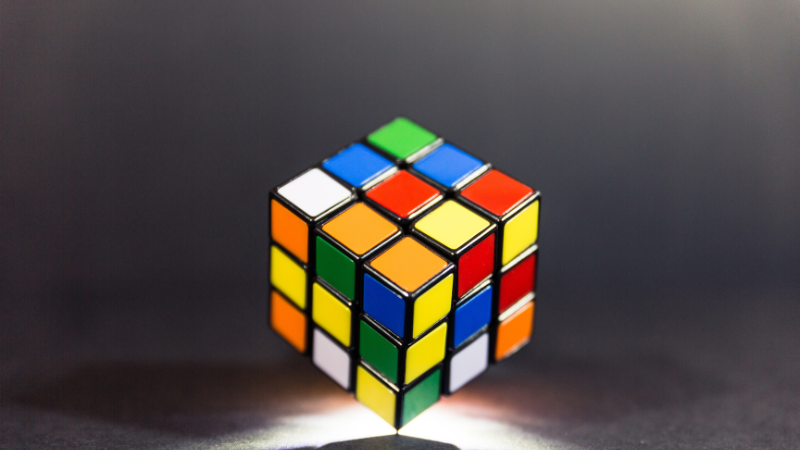
The twentieth century witnessed a surge in different types of brain teasers. Two famous creators of brain teasers are Ern Rubik and Martin Gardner. Their innovative puzzles have shaped the evolution of brain teasers and inspired countless enthusiasts to tackle their mind-bending challenges.
Ernő Rubik
Erno Rubik, a Hungarian inventor, architect, and professor of architecture, is best known for inventing the Rubik’s Cube, a 3D combination puzzle that has puzzled millions since its creation in 1974. With six faces, each adorned with nine stickers in six different colors, the Rubik’s Cube has become a global phenomenon, selling over 350 million cubes worldwide.
Rubik’s ingenuity and creativity have inspired a generation of puzzle enthusiasts and inventors, earning him numerous awards and accolades for his invention, including the Hungarian Order of Merit and the Order of the Star of Romania. His iconic Rubik’s Cube continues to challenge and entertain people around the world, solidifying his legacy as a true pioneer in the world of brain teasers.
Martin Gardner
Martin Gardner an American popular mathematics and science writer, played a pivotal role in popularizing brain teasers through his writings, sparking interest in mathematics and puzzles among a wide audience. He is best known for his “Mathematical Games” columns in Scientific American, which featured a wide variety of brain teasers and puzzles designed to challenge the minds of readers.
Gardner’s work has had a significant impact on popular culture, with his brain teasers being featured in movies, television shows, and video games. His contributions to recreational mathematics have inspired countless brain teaser enthusiasts and have played a vital role in the ongoing evolution of puzzles and riddles.
Puzzle competitions and communities also emerged, fostering a sense of camaraderie among puzzle enthusiasts.
Modern Era: Technology and the Internet
The advent of technology ushered in a new era for brain teasers. Electronic and computerized puzzles made their debut, providing interactive and dynamic experiences. With the rise of the internet, online platforms dedicated to brain teasers emerged, allowing enthusiasts from around the globe to connect and compete. Mobile applications further revolutionized the accessibility of brain teasers, enabling individuals to solve puzzles on the go. These technological advancements brought brain teasers into the digital age, making them more accessible and engaging than ever before.
Brain Teasers in Pop Culture
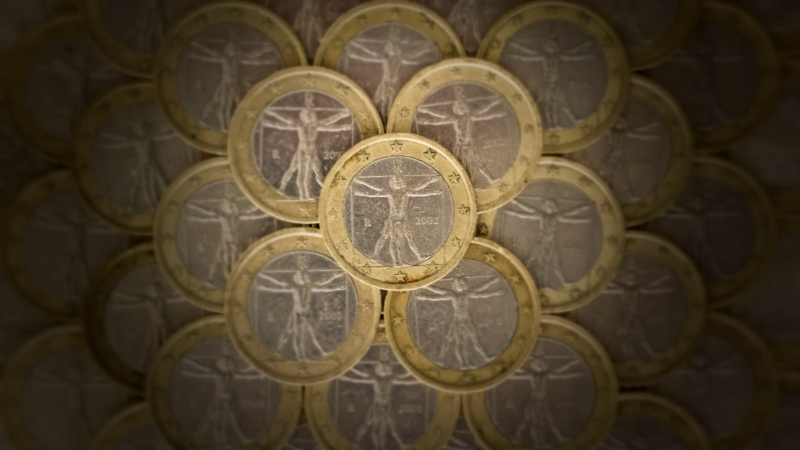
Movies and Television
Brain teasers have found their way into the heart of popular culture, captivating audiences through various forms of media. From movies like The Imitation Game and The Da Vinci Code to television shows such as The Big Bang Theory and Sherlock, brain teasers have provided countless hours of entertainment and mental stimulation.
The incorporation of brain teasers in movies and television shows adds an extra layer of mental stimulation for the audience, allowing them to engage with the story on a deeper level by solving puzzles alongside the characters. These brain teasers can range from intricate riddles left by villains to complex codes that must be deciphered in order to advance the plot.
Video Games and Escape Rooms
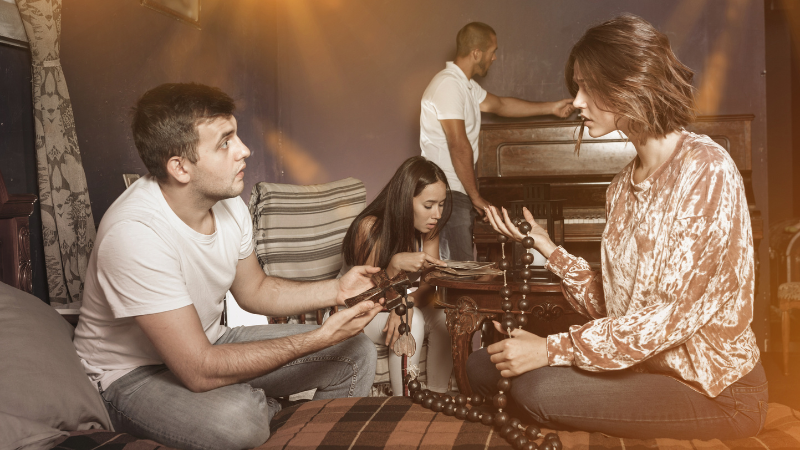
In the realm of video games and escape rooms, brain teasers offer a unique and engaging challenge for players, testing their problem-solving skills and creativity. Video games and escape rooms are perfect platforms for brain teasers, offering players an interactive and immersive experience that challenges their problem-solving skills and creativity. These games often feature a variety of puzzles, riddles, hidden objects, and other brain teasers, providing players with a diverse range of challenges to overcome.
Impact and Benefits of Brain Teasers

Brain teasers go beyond mere entertainment; they offer a myriad of benefits. Engaging in brain teasers provides mental exercise, keeping our minds sharp and agile. The cognitive benefits of engaging with brain teasers are well-documented, with studies showing that they can improve problem-solving skills, memory, and creativity. By giving your brain a workout, these puzzles can help keep your mind sharp and focused, reducing the risk of dementia and other age-related cognitive decline.
Brain teasers find their place in education, where they are incorporated into curriculum and brain training programs, helping students develop essential cognitive abilities. Moreover, brain teasers offer a welcome escape from the stresses of daily life, providing a source of relaxation and amusement.
FAQS
What are the benefits of solving brain teasers?

Solving brain teasers offers numerous benefits beyond just entertainment. Engaging with brain teasers provides mental exercise, keeping our minds sharp and agile. It enhances problem-solving skills, critical thinking abilities, and creativity. Additionally, brain teasers can improve memory, boost concentration, and enhance overall cognitive function. So, besides the sheer enjoyment, solving brain teasers is a fantastic way to challenge yourself and reap the cognitive rewards.
Can brain teasers help improve academic performance?

Yes, brain teasers can have a positive impact on academic performance. By engaging in brain teasers, students develop problem-solving skills, critical thinking abilities, and analytical reasoning. These skills are transferable to various academic subjects, such as mathematics, science, and language arts. Moreover, brain teasers make learning fun and can spark curiosity and a love for intellectual challenges. Incorporating brain teasers into education can enhance student engagement and overall academic achievement.
Additional Reading
Conclusion
The history of brain teasers demonstrates their enduring appeal and significance throughout time. From their humble origins in ancient civilizations to the modern-day digital age, brain teasers have captured the imagination of countless individuals. They have evolved, adapted, and diversified, reflecting the changing intellectual landscape of humanity.
Today, brain teasers continue to be a source of joy and intellectual stimulation. Whether it’s solving crossword puzzles, unraveling riddles, or tackling logical challenges, these puzzles offer a unique form of entertainment that engages our minds in captivating ways.
So, the next time you find yourself engrossed in a brain teaser, remember the centuries of puzzle enthusiasts who came before you. Embrace the challenge, relish the satisfaction of solving, and continue to explore the ever-expanding world of brain teasers.
Do you have a favorite brain teaser? Please comment below.
